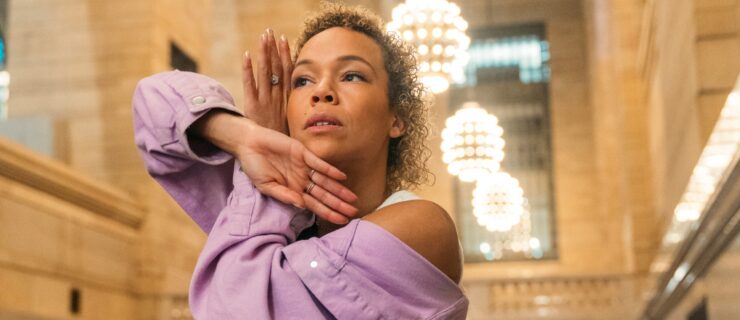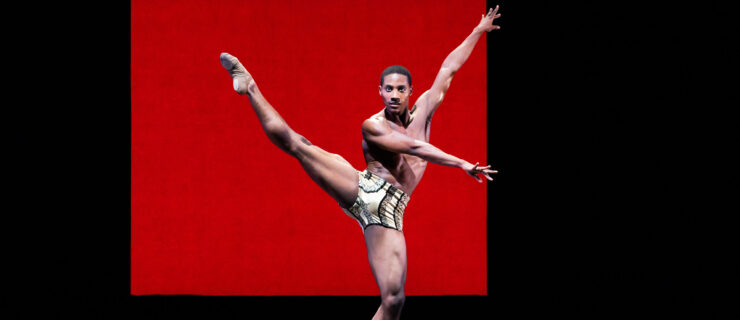Dancers: Are You Forgetting This Essential Component of Self-Care?
Caring for yourself as a dancer is about more than rolling out your IT bands and eating the right food. However, when my podcast partner and I conducted an exploratory study of dancers’ perceptions of their own well-being, only a handful of over 175 participants identified financial counseling as important self-care, even though many stated that issues related to money were among their top three well-being concerns.
Without adequate funds, you might feel like you can’t afford to take class, eat healthy foods or even seek treatment for an injury. You may not be able to accept work you love, and you may even be vulnerable to exploitation.
So how can you get a handle on your financial wellness in 2020? Here, Rebecca Selkowe, a financial counselor at The Actors Fund in NYC, shares advice for dancers on managing money.
Understand your personal relationship to money.
Beyond your spending habits, Selkowe says that you need to consider your broader relationship with money. “Financial wellness is the balance of three things: the mental, spiritual and physical aspects of money. So, what you what you think about money, what you feel about money and what you do with money.”
Do you think you deserve a decent wage for your work? Do you feel like you should have paid off your loans by now? Your financial wellness is affected by these, along with your personal history with money (like how we were raised to think about spending) and cultural narratives (like the stereotype of the starving artist).
“There are so many factors that we may or may not be aware of that are impacting the financial decisions that we make,” says Selkowe.
Steer clear of common dancer pitfalls.
People in all walks of life struggle to make good choices with money, but Selkowe sees three particular mistakes when she works with dancers:
Avoidance:
If you just graduated with a pile of student loans and you’re working three babysitting jobs to pay your rent while auditioning for dance gigs, getting your financial house in order may seem hopeless. Indeed, avoidance is a common response. However, it only makes matters worse, so Selkowe reminds dancers that the future may look different.
“If you can adopt the mindset that you will one day have money,” your attitude will change and you might realize that “you don’t want to start learning how to manage it when you suddenly have it.”
When you get a big grant, a role on Broadway or a steady salaried job, your financial situation will improve and you’ll want to know what you’re going to do with your newfound assets. “Start when you have less and make the mistakes with insignificant amounts,” Selkowe says, “so that when that big job comes in, you’re not making mistakes when the stakes are so much higher.”
Misusing credit:
Don’t think of credit cards as cash money. Selkowe acknowledges that credit and loans are a part of life, so she doesn’t insist that you avoid them altogether. Instead, she wants dancers to know that credit is a really expensive way of buying something. When you look at the price of what you’re buying on credit, you have to add the interest and decide if it’s still a worthwhile investment.
Thinking you’re alone:
Poor financial health can feel isolating. When Selkowe runs workshops at The Actors Fund, and someone articulates what they’re going through, she likes to ask if the experience resonates with others in the group, and inevitably, lots of people raise their hands. Know that you are not alone when it comes to feeling overwhelmed about money!
Set a budget.
Just like a dance skill, budgeting is a skill that takes time and practice. Selkowe lays out three phases to establishing a budget.
-
I
ntention:
The first step is to decide what you want. In both the big picture, and the day-to-day, for the future and for now, what are your goals? -
Attention:
Look at your spending habits in a very detailed way and then make a reasonable plan. Selkowe cautions dancers against rushing into action. Too often, people see their numbers, freak out, and immediately move to unrealistic responses. For example: “I’m never buying coffee again!!” Instead, Selkowe advises people to linger in the attention phase for a very long time, assessing and evaluating their spending against the goals they established in step one. -
Action:
Finally, you’re ready to implement your plan and reach your goals. You’ll need to analyze your successes and failures in this phase. If you’re not able to stick to your plan, what do you need to make it work better? Do you need more practice, training, information or something else?
Find help.
The Actors Fund has free financial resources for all performing artists, including dancers, in New York City, Los Angeles and Chicago. If you’re not in one of those areas, you can still reach out to The Actors Fund at the regional office nearest you for access to their other resources and support. Dealing with money can definitely be stressful, and having the support of others is invaluable.




